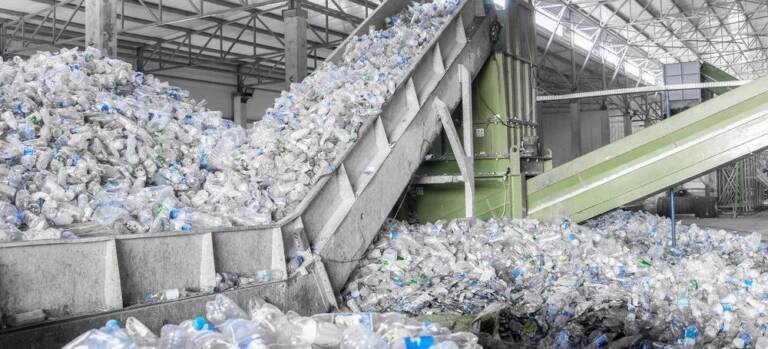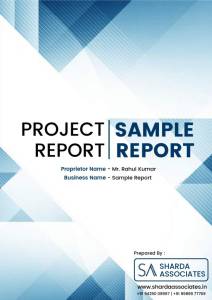Project Report For PET Bottle Recycling Plant
Introduction
Project Report For PET Bottle Recycling Plant is as Follows.
PET bottle recycling plants are specialised facilities that process and recycle discarded PET (polyethylene terephthalate) bottles, which are frequently used to package drinks, personal care items, and other consumer goods.
The major goal of the factory is to collect, sort, clean, and convert old PET bottles into raw materials that may be utilised to manufacture new PET bottles or other goods. The collecting of PET bottles from different sources, such as recycling centres, municipal rubbish, or designated collection locations, begins the process. To guarantee a constant feedstock for the recycling process, the collected bottles are sorted by colour, size, and kind.
The bottles are thoroughly cleaned to remove labels, caps, and other impurities. This incorporates mechanical or chemical washing processes, which may include hot water and detergent solutions. The cleaned bottles are then shredded into small bits or flakes to improve surface area and assist future processing.
During this, the shredded PET flakes are decontaminated. This includes eliminating any leftover contaminants, such as glue residue, paper, or non-PET plastics. The flakes are washed again and treated to different procedures, such as heat treatment or chemical processing, to remove any possible impurities. Purified PET flakes are further processed after decontamination. They are melted and turned into little pellets by an extrusion process.
These pellets are used to make new PET bottles or other items such as polyester fibres used in textiles or automotive components. The use of recovered PET pellets is the final stage in the PET bottle recycling process. These pellets may be sold to manufacturers who will utilise them to make new PET bottles, eliminating the requirement for virgin plastic and lowering the environmental effect of its creation. PET bottle recycling operations help to create a circular economy by decreasing waste, saving resources, and lowering pollution.

Types Of PET Bottle Recycling Plant
Sorting Plants: These plants specialise in the separation and sorting of PET bottles depending on their colour, size, and kind. They sort the bottles using modern sorting technologies, such as optical scanners or infrared sensors, to ensure a uniform feedstock for subsequent processing.
Washing & Cleaning Facilities: These facilities specialise in cleaning and washing PET bottles thoroughly. They remove labels, caps, and impurities using mechanical or chemical procedures such as hot water, detergent solutions, and friction, resulting in clean and ready bottles for further processing.
Plants for Shredding and Granulating: These facilities are outfitted with shredding equipment that efficiently convert PET bottles into minute fragments or flakes. The shredded material is subsequently granulated, which entails breaking the flakes into smaller, uniform-sized bits. These factories produce PET flakes or granules, which are used as raw materials in the manufacture of new PET goods.
Plants for Decontamination and Purification: These plants specialise in the decontamination and purification of PET flakes or granules. They use a variety of procedures, such as heat treatment, chemical processes, or sophisticated filtering technologies, to eliminate impurities such as glue residue, paper, or non-PET polymers, resulting in clean and high-quality recycled PET materials.
Market Potential Of PET Bottle Recycling Plant
The Plastic Bottle Recycling Market was valued at USD 4170.9 Million in 2021 and is expected to reach USD 5611.3 Million by 2030, increasing at a CAGR of 4.3% between 2022 and 2030.
Plastic usage has skyrocketed, as has waste plastic production. The shape of the garbage container has also altered as a result of this evolution. Organic matter has degraded as a result of reproduction and consumption, whilst plastics have increased. Plastic bottles are the most often eaten and discarded of the new improvements created from plastic materials. Bottle recycling is done on a vast scale to prevent bottle waste, resulting in market growth throughout the anticipated period.
Due to safety concerns about contaminants from prior usage, recycled plastics are rarely employed in packaging applications. Some states allow the use of recycled plastic resin in conjunction with virgin resin for food-grade containers, however the recycled quality cannot be maintained to the requisite standard. They aid in the diversion of plastic trash from landfills and the reduction of demand for new plastic manufacture. Furthermore, by encouraging responsible plastic waste management, these plants create jobs and promote environmental sustainability.
Project Report Sample On PET Bottle Recycling Plant
Need Help?
Create 100% Bankable Project Report

